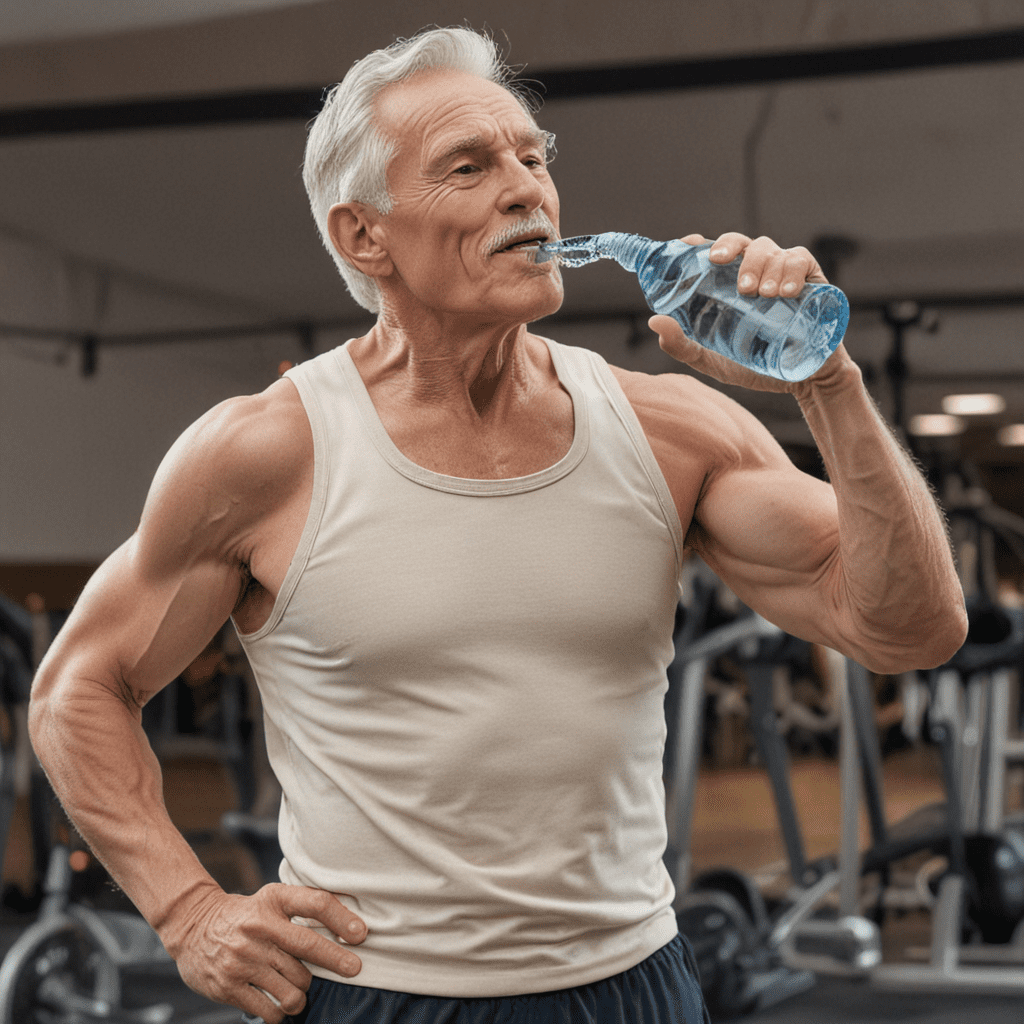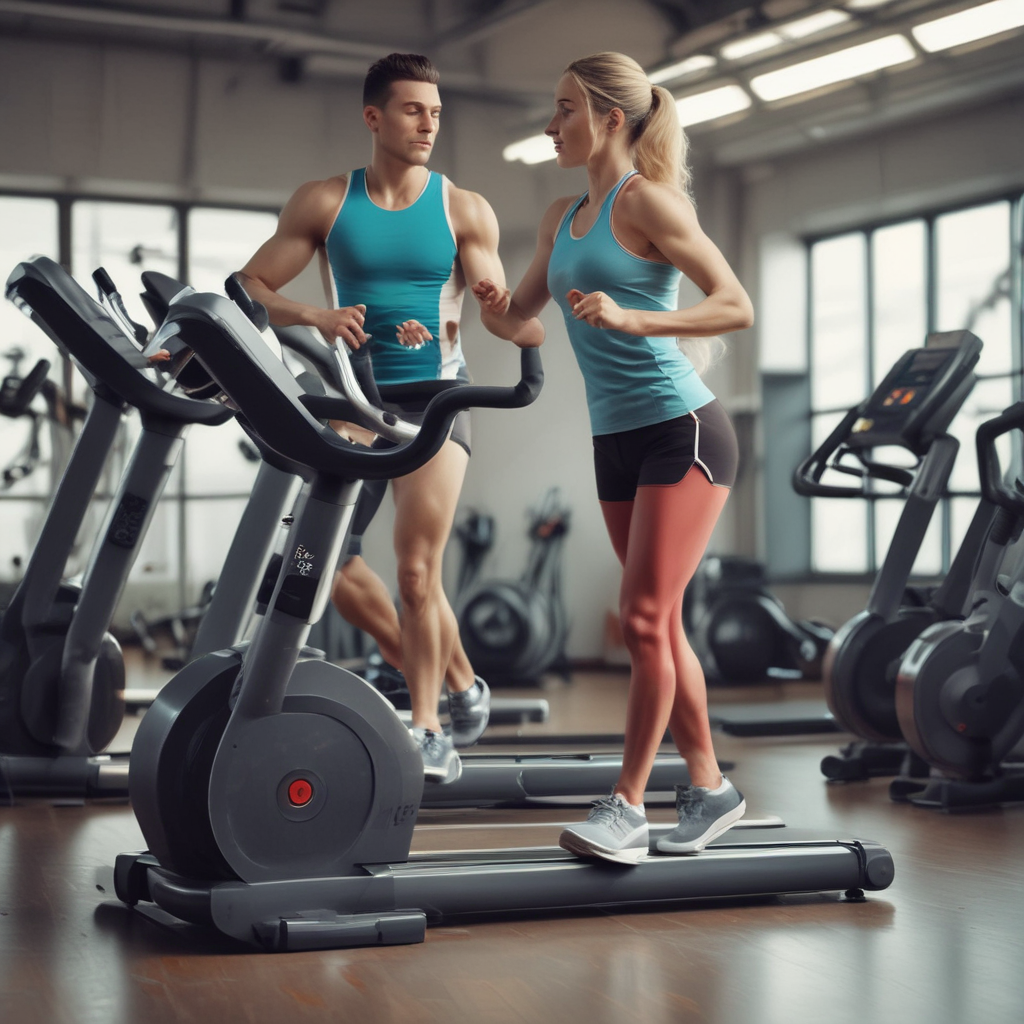
Benefits of Exercise Hydration for Seniors: Importance of Water Intake
I. Importance of Water Intake for Seniors
As we age, maintaining proper hydration becomes increasingly crucial. Water comprises approximately 60% of the human body and plays vital roles in various physiological processes. For senior citizens, staying hydrated is essential for maintaining overall health, well-being, and cognitive function. Adequate water intake supports bodily functions such as regulating body temperature, transporting nutrients and oxygen to cells, and eliminating waste products.
II. Dehydration and its Risks for Older Adults
Dehydration occurs when the body loses more fluids than it takes in. This can be caused by several factors, including insufficient water intake, excessive sweating, or certain medical conditions. Dehydration is particularly dangerous for seniors due to their reduced ability to conserve water and their increased risk of underlying health issues. Even mild dehydration can lead to adverse effects such as fatigue, confusion, and impaired physical performance.
III. How Exercise Exacerbates Dehydration
Exercise can significantly increase fluid loss through sweating. As we age, our sweat glands become less efficient, making it harder for seniors to cool down and maintain hydration during physical activity. Engaging in exercise without proper hydration can lead to dehydration and its associated risks, including heat exhaustion and heatstroke.
IV. Consequences of Dehydration During Exercise
Dehydration during exercise can impair physical performance, increase muscle fatigue, and reduce endurance. It can also compromise cardiovascular health by increasing heart rate and blood pressure. Severe dehydration can lead to more serious consequences, such as electrolyte imbalances and organ damage.
V. Benefits of Exercise Hydration
Maintaining adequate hydration during exercise is crucial for senior citizens. Proper hydration can:
- Improve Exercise Performance: Staying hydrated helps regulate body temperature, transport nutrients, and remove waste products, leading to enhanced physical performance.
- Reduce Fatigue: Water helps maintain electrolyte balance and prevents muscle cramps, reducing fatigue during exercise.
- Protect Against Heat-Related Illnesses: Adequate hydration helps prevent heat exhaustion and heatstroke by maintaining body temperature and reducing the risk of dehydration.
- Support Cardiovascular Health: Staying hydrated ensures proper blood flow and reduces strain on the heart during exercise.
VI. Physiological Effects of Adequate Hydration
Proper hydration supports several physiological processes during exercise, including:
- Maintaining Blood Volume: Water helps maintain blood volume, ensuring adequate blood flow to muscles and organs.
- Regulating Body Temperature: Water helps regulate body temperature by evaporating through sweat, cooling the body during exercise.
- Transporting Nutrients and Oxygen: Water facilitates the transportation of nutrients and oxygen to muscles, supporting energy production and muscle function.
- Removing Waste Products: Water helps remove waste products, such as lactic acid, from muscles, reducing muscle fatigue.
VII. Cognitive and Mood Benefits of Proper Hydration
Adequate hydration can also enhance cognitive function and mood. Water is essential for brain health, as it helps maintain proper blood flow to the brain. Dehydration can lead to reduced cognitive performance, impaired concentration, and increased risk of falls. Staying hydrated can also improve mood and reduce feelings of fatigue and irritability.
VIII. How Seniors Can Stay Hydrated
Seniors can ensure they stay hydrated by:
- Drinking Water Regularly: Establish a regular habit of drinking water throughout the day, even when not feeling thirsty.
- Carrying a Water Bottle: Keep a water bottle handy during exercise and other activities to encourage frequent sipping.
- Choosing Water-Rich Foods: Include water-rich fruits and vegetables, such as watermelon, cucumber, and spinach, in their diet.
- Avoiding Dehydrating Beverages: Limit consumption of sugary drinks, caffeine, and alcohol, as these can contribute to dehydration.
IX. Tips for Drinking Enough Water
To ensure adequate hydration, seniors can follow these tips:
- Set Realistic Goals: Start by gradually increasing water intake, aiming for at least eight glasses of water per day.
- Use a Straw: Using a straw may make drinking water more enjoyable and encourage increased intake.
- Flavor Water: Add slices of fruit, such as lemon or cucumber, to water to enhance flavor and make it more appealing.
- Track Water Intake: Use a water bottle with markings or a tracking app to monitor water consumption throughout the day.
X. Role of Healthcare Professionals in Promoting Hydration
Healthcare professionals play a crucial role in promoting hydration among seniors. They can:
- Educate about Dehydration Risks: Inform seniors about the risks of dehydration, especially during exercise.
- Recommend Personalized Hydration Plans: Provide tailored guidance on daily water intake and strategies for staying hydrated during activities.
- Monitor Hydration Status: Regularly assess seniors' hydration status through physical exams, urine analysis, and other tests.
- Encourage Water-Rich Beverages: Recommend incorporating water-rich beverages, such as fruit juice or herbal tea, into their diet.
FAQ
Q: How much water should seniors drink per day?
A: Seniors should aim to drink at least eight glasses of water per day.
Q: What are the signs of dehydration in seniors?
A: Signs of dehydration in seniors include fatigue, confusion, impaired balance, and reduced urine output.
Q: How can seniors avoid dehydration during exercise?
A: Seniors can prevent dehydration during exercise by drinking plenty of water before, during, and after physical activity.


